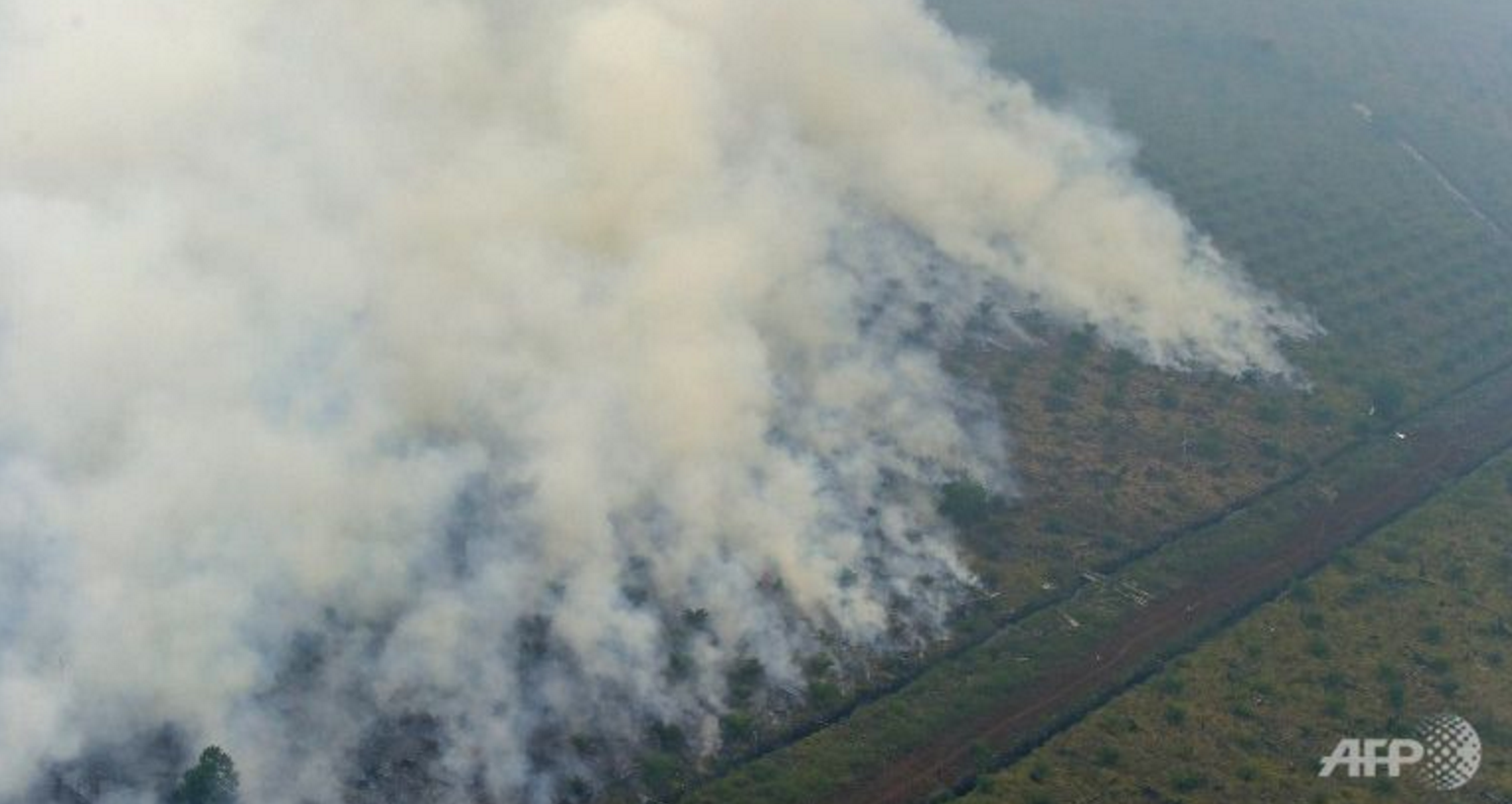More Pressure and Engagement Is Needed to Repair a Broken System

This file picture taken on Sep 17, 2015 shows fires burning at a concession area in Pelalawan, Riau province. (Photo: AFP/Adek Berry)
Last week, Rainforest Action Network and other International and Indonesian NGOs met with Asia Pulp and Paper (APP), one of the largest pulp and paper companies in the world, to discuss how the company can address ongoing fires, land conflicts, deforestation and key structural and governance issues that, despite an ambitious sustainability commitment and some promising developments, indicate a flawed business model in need of repair.
Currently, forest fires are raging across Sumatra and Borneo, and are creating huge economic, social and environmental costs in Indonesia and the region. The resulting haze of smoke is causing massive health problems––closing schools and airports––and even causing death in some cases. Singapore has singled out APP and several of its suppliers as companies responsible for the fires, and is undertaking legal action. Unprecedentedly, supermarkets in Singapore are boycotting APP products, removing them from store shelves. Indonesian NGO Eyes on the Forest recently released maps and analysis detailing the fires currently burning on APP and supplier plantations.
The conditions that led to the brutal murder of farmer Indra Pelani by APP security forces in Jambi province last February including hundreds of ongoing land conflicts with local communities, are still unresolved, and APP has yet to tackle the pervasive “third party” deforestation taking place across APP and its’ suppliers concessions.
These issues are borne out by an independent evaluation of APP’s performance in meeting its social and environmental commitments that was released shortly before Mr. Pelani’s murder. It is the urgency and gravity of these problems that has brought RAN back into discussions with APP.
Without ongoing scrutiny and engagement from civil society, private sector, government and others, we’re not confident that APP can tackle these issues. The company has yet to take sufficient action to achieve meaningful changes on the ground for communities and for the forests of Indonesia. What’s more, the structural changes required––which were thrown into stark relief by the murder of Mr. Pelani––to reform the company’s security apparatus, concession level operations and personnel issues, have yet to be put in place. Systematic, business-wide change is needed now.
RAN’s role is to work with Indonesian partners to monitor and report on APP’s progress and to provide information and recommendations to APP, paper buyers, investors, media and others on how to get improved outcomes for communities, forests and the climate.
Before our meetings last week, we sent a letter to APP proposing re-engagement and providing a set of recommendations on how to address land conflicts and the issues underlying Mr Pelani’s murder (A PDF of the letter is available for download at the bottom of this page). We also joined the Environmental Paper Network and other NGOs in proposing a broader set of recommendations.
APP’s willingness to act on these recommendations and demonstrate change on the ground must be the measure that paper customers and investors adopt in their scrutiny of APP’s performance. Until such changes are independently verified, APP poses too many social, environmental and governance risks to do business with. The ongoing fires, Mr. Pelani’s murder, the company’s expansion plans and the findings of the Rainforest Alliance evaluation underscore RAN’s position that stakeholders need to engage and pressure the company to take the actions needed for lasting change.
